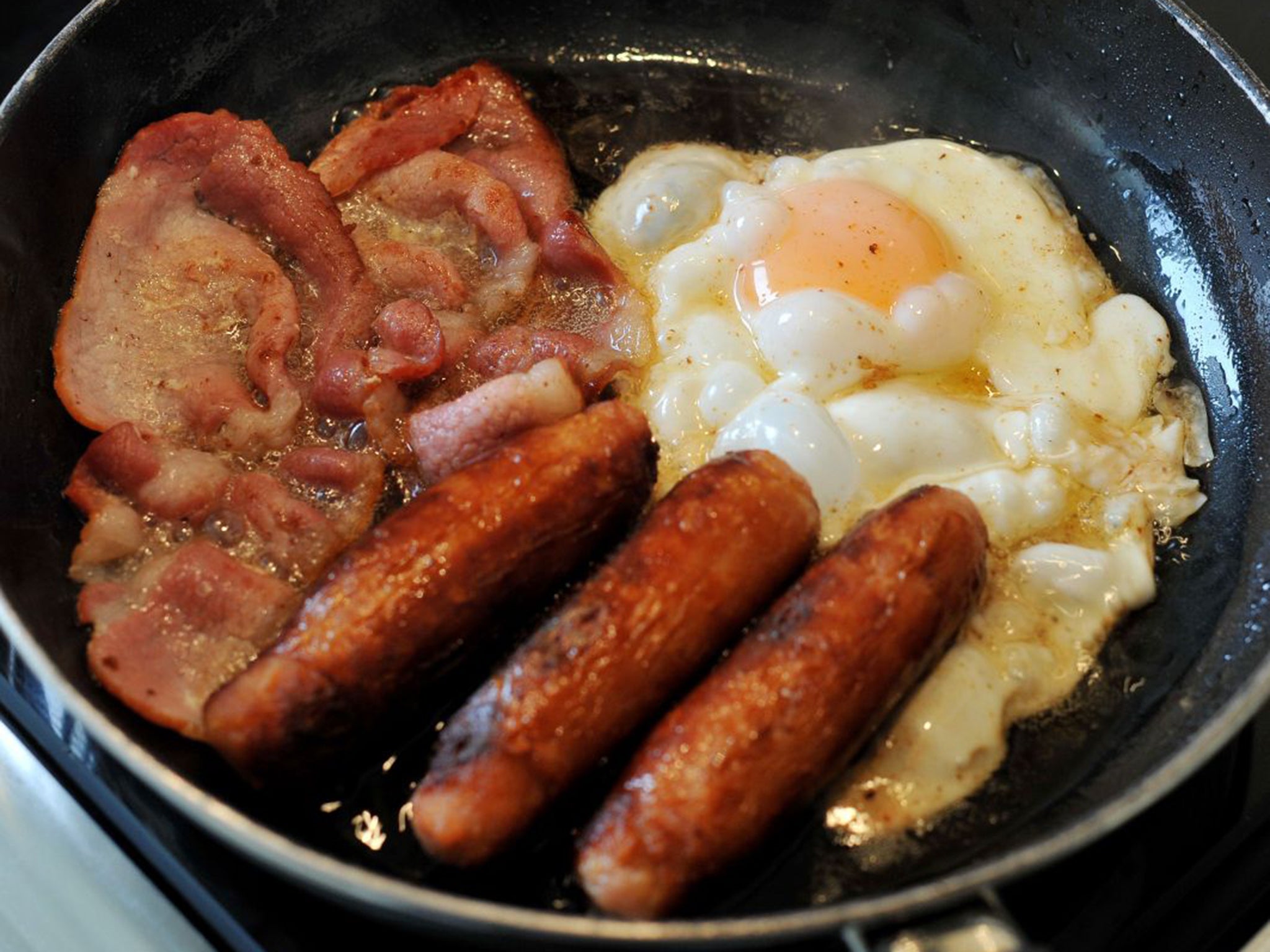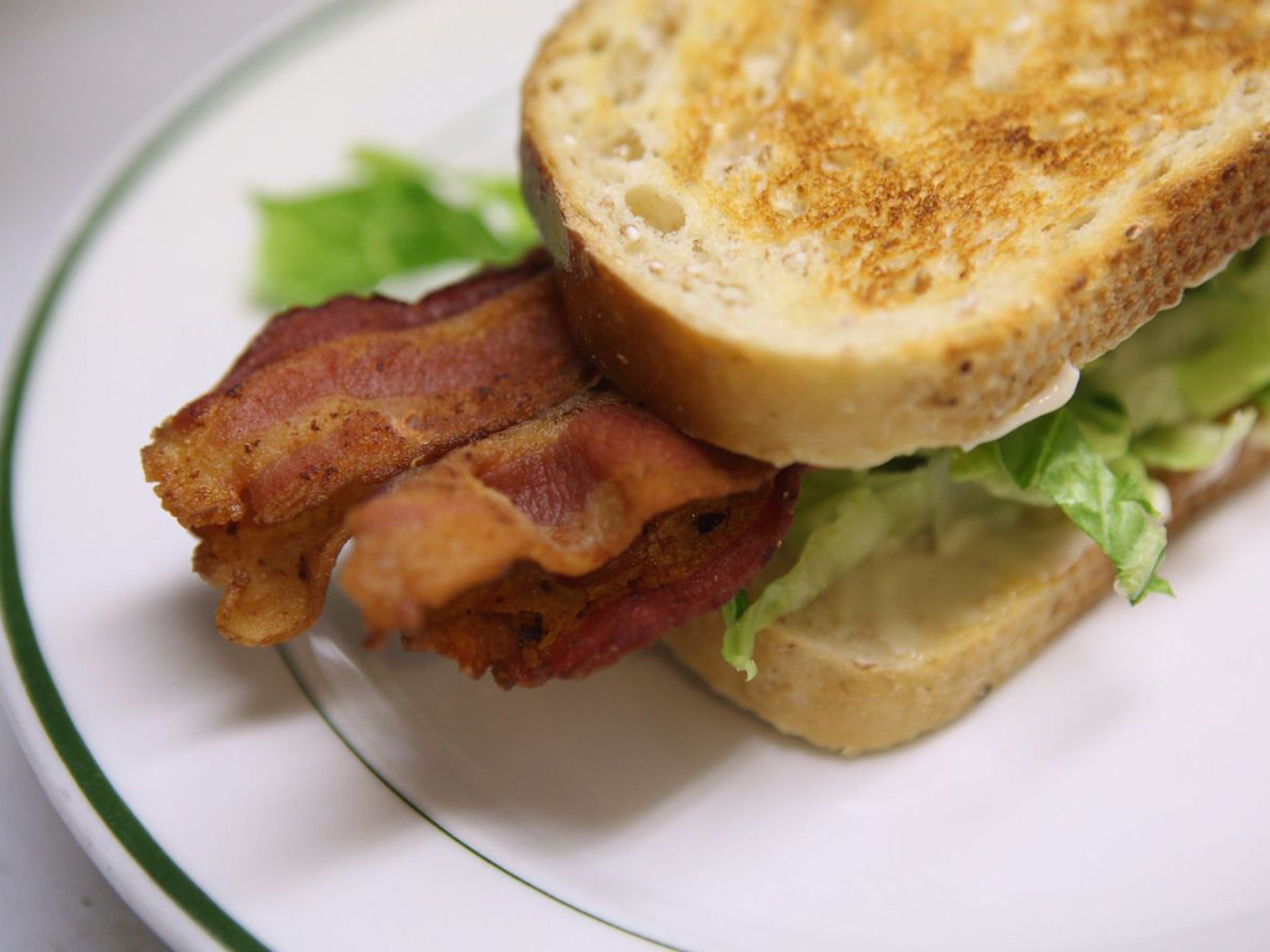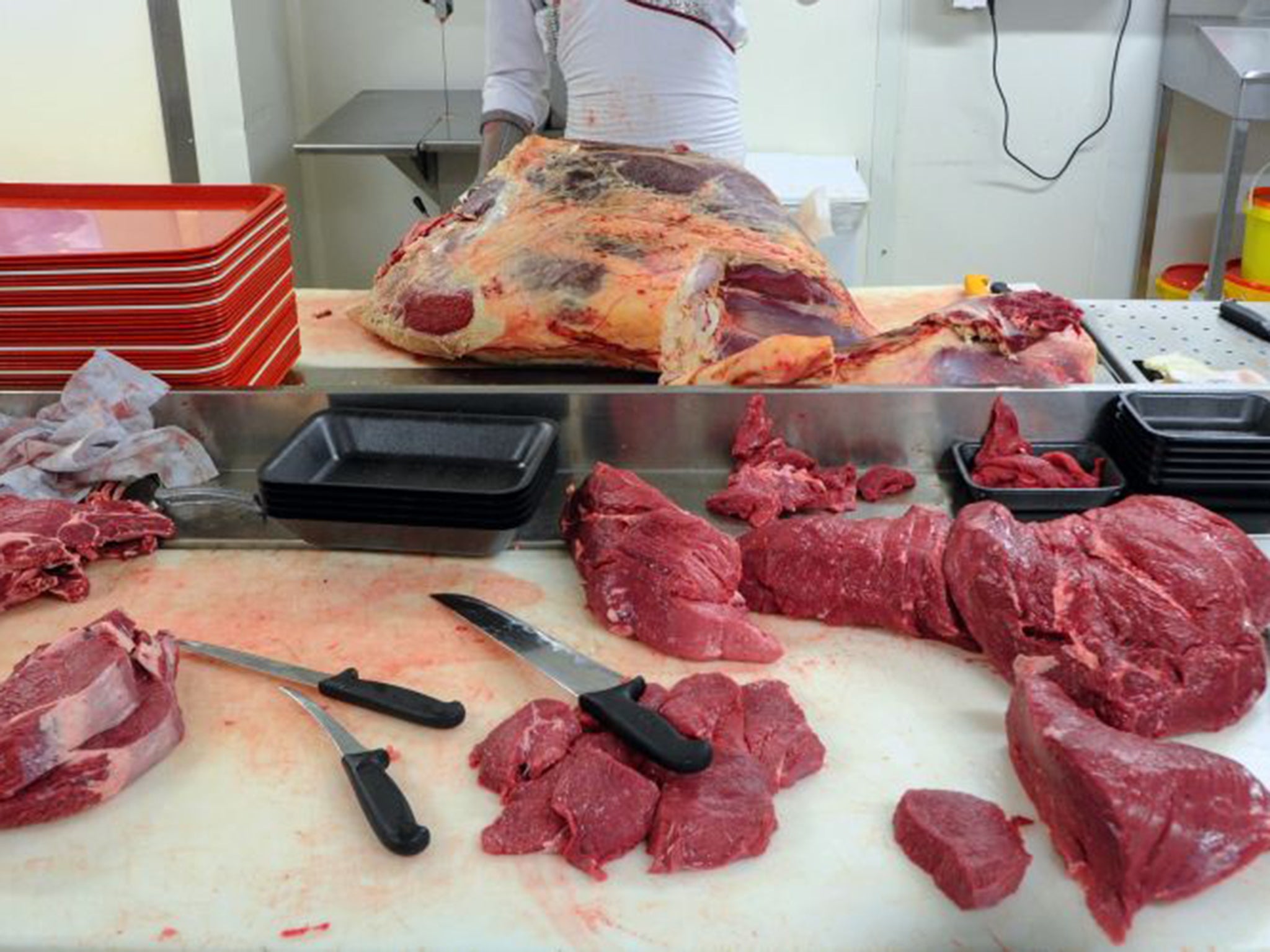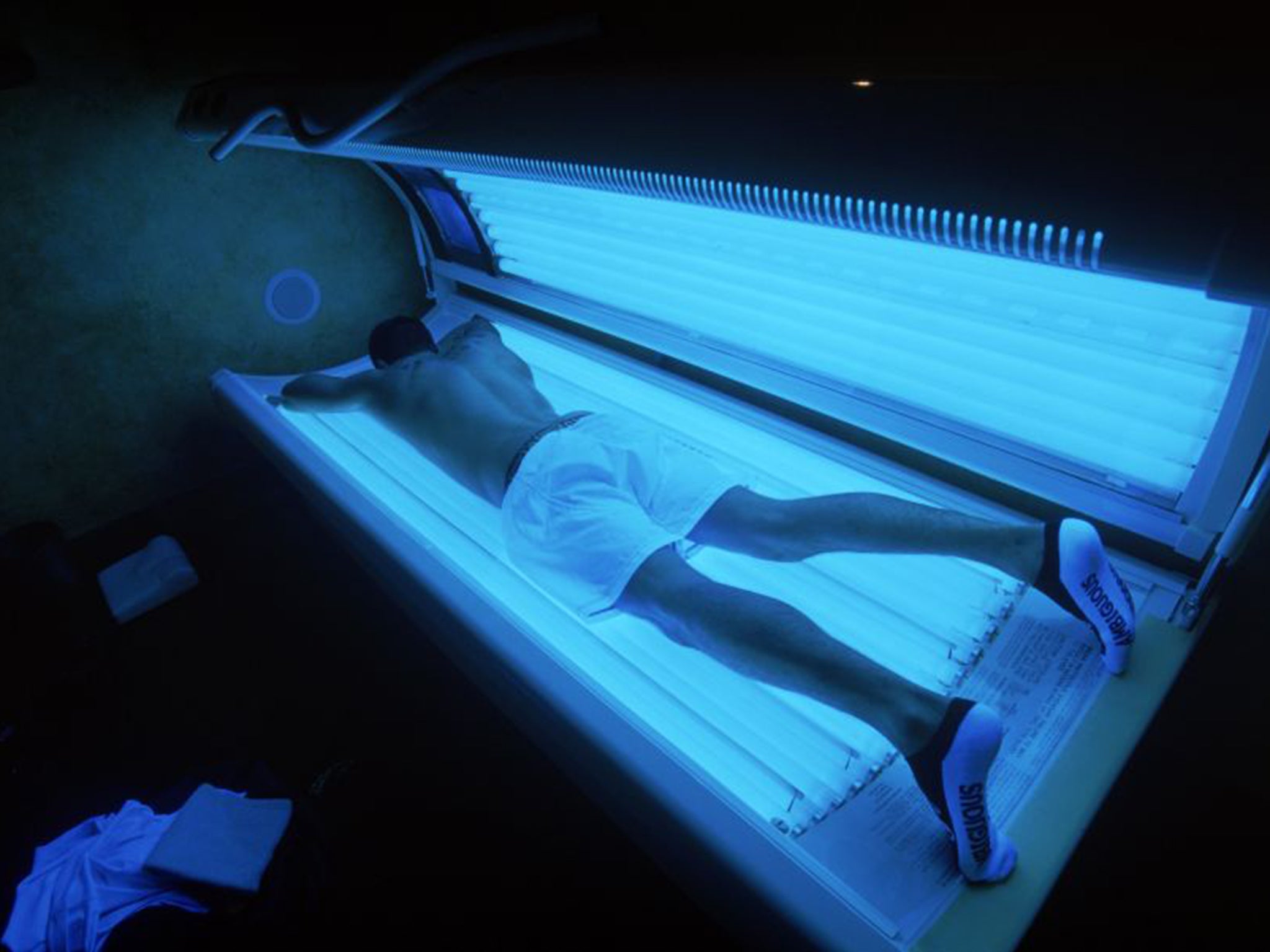Processed meat and cancer link: Just two rashers of bacon per day increases risk of bowel cancer, says WHO
World Health Organisation places bacon and ham in the same category as cigarette smoke and formaldehyde

Your support helps us to tell the story
From reproductive rights to climate change to Big Tech, The Independent is on the ground when the story is developing. Whether it's investigating the financials of Elon Musk's pro-Trump PAC or producing our latest documentary, 'The A Word', which shines a light on the American women fighting for reproductive rights, we know how important it is to parse out the facts from the messaging.
At such a critical moment in US history, we need reporters on the ground. Your donation allows us to keep sending journalists to speak to both sides of the story.
The Independent is trusted by Americans across the entire political spectrum. And unlike many other quality news outlets, we choose not to lock Americans out of our reporting and analysis with paywalls. We believe quality journalism should be available to everyone, paid for by those who can afford it.
Your support makes all the difference.Eating bacon rolls, hot dogs and corned beef can raise the risk of suffering from bowel cancer, according to a major new report that is set to ignite a fierce debate over the merits of a meat-based diet.
Red meat, including beef, pork and lamb, has also been linked to colon, prostate and pancreatic cancers, a major study commissioned by the World Health Organisation (WHO) found.
The report by the International Agency for Research on Cancer (IARC), which has already drawn fire from the meat industry, found that processed meats do cause bowel cancer, and are in the same risk category as asbestos, alcohol, arsenic and tobacco. It also found that red meat probably causes cancer.

It said that just 50g of processed meat a day – less than two slices of bacon – increases the chance of developing bowel cancer by 18 per cent. Bowel cancer is the third-most common type of cancer world-wide and is responsible for more than 16,000 deaths a year in the UK.
“For an individual, the risk of developing colorectal [bowel] cancer because of their consumption of processed meat remains small, but this risk increases with the amount of meat consumed,” said Dr Kurt Straif, head of the IARC Monographs Programme. “In view of the large number of people who consume processed meat, the global impact on cancer incidence is of public health importance. “
Following the report the WHO now classifies processed meat products as “carcinogenic to humans”, the strongest level of risk for cancer, the same level as cigarette smoke, asbestos, arsenic and diesel exhaust fumes.
Red meats, such as beef steak and roast lamb, are considered “probably” cancer-causing after the report found that there was some evidence that 100g of red meat a day increased the risk of cancer by 17 per cent a day. However it also found that red meat did have other health benefits, such as being a good source of iron, zinc and vitamin B12.
One possible reason is that the compound that gives red meat its colour, haem, may damage the lining of the bowel, while other studies have shown that people who eat more red meat tend to consume fewer plant-based foods which protect against cancer. A McDonald’s Big Mac contains more than 90g of meat, while an eight ounce steak is 225g of meat.
Processed meat is thought to have a higher cancer risk than red meat because carcinogenic chemicals, such as the N-nitroso compound and polycyclic aromatic hydrocarbons, can form during smoking or curing and when salt or preservatives are added.
But this does not mean that processed meat, smoking and asbestos are all equally dangerous, as classifications describe the strength of the scientific evidence about an agent being a cause of cancer, rather than assessing the level of risk.
Professor Tim Key, from Cancer Research UK, said: “This decision doesn't mean you need to stop eating any red and processed meat. But if you eat lots of it you may want to think about cutting down. You could try having fish for your dinner rather than sausages, or choosing to have a bean salad for lunch over a BLT.
”Eating a bacon bap every once in a while isn't going to do much harm - having a healthy diet is all about moderation.“
The decision by the IARC drew a furious response from the meat industry which has as battled health authorities on the place of meat in a balanced diet for decades and has funded scientific research on the benefits of eating meat. In a statement released on 26 October the industry body the Meat Advisory Panel defended processed and red meat and said that “choosing lean cuts of meat” can “further assist with “health promotion”.
Professor Robert Pickard, a member of the panel and a neurobiologist at the University of Cardiff, said: “Avoiding red meat in the diet is not a protective strategy against cancer. The top priorities for cancer prevention remain smoking cessation, maintenance of normal body weight and avoidance of high alcohol intakes.”

Professor Pickard is regularly provided as a spokesperson for the Meat Advisory Panel, which is funded by British meat producers, a role he carries out in addition to being an international authority on the biology of honeybees and previously serving as the chair of the Government committee on radioactive waste management.
Meurig Raymond, president of the National Farmers Union said there is a “complex relationship” between meat eating and public health and argued against “polarised or simplistic” solutions.
Red meat: Pros and cons
Red meat is still recommended as a good source of protein, B vitamins, and minerals such as iron and zinc.
The NHS health advice remains that it is OK to eat meat but it is advisable to cut down to no more than 70 grams a day.
The World Health Organisation admits that the cancer risk from processed and red meat is “not yet fully understood”.
But chemicals, such as N-nitroso compounds and polycyclic aromatic hydrocarbons, which are suspected carcinogens, can form during meat processing.
Cooking meat at high temperatures, especially on a barbecue, can also produce dangerous chemicals.
According to Cancer Research UK, 21 per cent of bowel cancers are caused by processed or red meat (compared with 86 per cent of lung cancers which are caused by tobacco), while just 3 per cent of all cancers can be attributed to red or processed meat.
Out of the frying pan: What to avoid
Since the 1970s, the World Health Organisation has evaluated whether nearly 1,000 suspected carcinogens really do cause cancer.
Its International Agency for Research on Cancer classifies the agents into one of five categories – definitely carcinogenic, probably carcinogenic, possibly carcinogenic, probably not carcinogenic, and not classifiable. Here are some of the common products and activities that it has ruled could pose a risk:

Definitely carcinogenic
* Tobacco smoking
* Smokeless tobacco
* Alcohol
* Outdoor air pollution
* Diesel engine exhaust
* Tanning beds (pictured)
* Soot
* Solar radiation
* Salted fish, Chinese-style
* Formaldehyde
* Wood dust
* Processed meat
* X and gamma radiation
* Shale oil
* Working as a painter
Probably carcinogenic
* Burning wood indoors
* Working as a hairdresser or barber (chemical exposure)
* Working nights and shift work
* Red meat
* Emissions from frying at high temperatures
* Glyphosate (used in some weedkillers)

Possibly carcinogenic
* Coffee
* Petrol engine exhaust
* Working as a dry-cleaner
* Pickled vegetables, Asian-style
* Working as a firefighter
* Ginkgo biloba extract
Probably not carcinogenic
* Caprolactam (a chemical used in synthetic fibres)
Join our commenting forum
Join thought-provoking conversations, follow other Independent readers and see their replies
0Comments